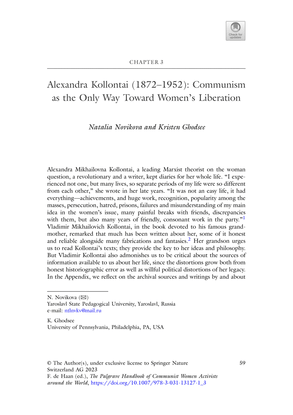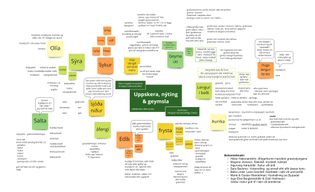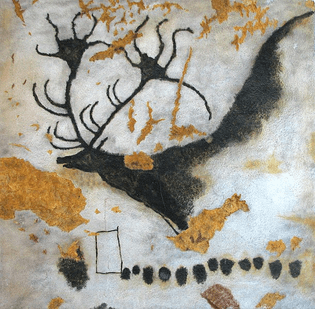ON ACCOUNTABILITY PROCESS
Is vengeance justice? Let's think about the example you gave- a girlfriend being assaulted in an anarchist society. Now, I'm an anarchist, whose partner is a survivor of assault and abuse that took place in socialist/anarchist spaces. When I found out about who had hurt her and what they had done, I was determined to act in vengeance. It wouldn't have been hard to do so- I was part of a crew who had already intervened physically in domestic violence situations when called on to do so, and the move from intervention to punishment would not have been hard to make. When I thought about what had been done to my partner, a deep pit of rage would well up from inside of me, and I knew exactly what kind of violence I wanted to carry out on the ones who had hurt her.
Now, many people who have just survived an assault feel the same way, and want to harm those who have harmed them. But there's some things you'll learn if you do a lot of survivor justice work. This was work that, at the time, I was being called on to do, usually as a male "accountability keeper" to the perpetrator. I would keep in contact with the perpetrator of the assault, at the request of the survivor, and make sure that they carry through their commitments to accountability. I would sit them the perpetrator and listen to their grievances with the accountability process, to their rationalizations and confused feelings about what they'd done and what they were now being asked to do to repair those harms, and I would help them sort out those feelings and get on track to doing the right thing. This was all in survivor led group called the Survivor Justice Working Group, in Minneapolis, in the years prior to the uprising; we were part of the first wave of police abolitionists in the city, and as part of those revolutionary anarchist, abolitionist politics, we formed this project to address sexual violence outside of the police and prison system- and to transform the simple but brutal way (baseball bats) we had always dealt with sexual violence in the movement prior to that.
The first thing I learned is that a lot of survivors do not want the people who harmed them to be harmed in retaliation. Most of the time, their rapist is someone they knew, someone they have a relationship to as a friend, a political colleague, a romantic relationship, a family member, a coworker... not just some random harm-doer who came into their life from left field. A survivor who was sexually assaulted by a drunk ex boyfriend after breaking up with him might not WANT her brothers or father or new boyfriend to go knee-cap her ex, even if she is completely NOT OK with what that ex did. Even survivors who initially DID want revenge often later come to reject that, and find that what they really want is some other form of healing, of having the harms redressed, of having security and a sense of safety... and they find that revenge alone won't bring these.
In fact, many survivors decline to tell the men in their lives about sexual assaults that happened to them, precisely because they don't want the perpetrator to face retaliatory violence and they don't want the men in their lives to go to prison (or, in many pre-state societies, to face retaliatory killing in family blood feuds). Many face abuse alone, in silence, having to protect their own rapist from the violence that men carry out in defense of the honor of the women in our lives... and in defense of our own honor.
Because ultimately, that's what a lot of it is, isn't it? The urge to maim and kill the man who harmed your lover, sister, mother, daughter? It's not only that they harmed this woman, it's that they harmed YOUR woman. Men often feel ashamed if they can't retaliate against men who harmed their women, because this failure makes us feel weak, unable to carry out our gender role as protectors. But it goes deeper, and for many men, especially when it comes to their own partner, this urge is also borne out of the feeling that the rapist took something not only from your girlfriend or wife, but from you. A lot of guys, when being intimate with a survivor of sexual violence, will encounter some reaction of trauma, some moment when the survivor withdraws sexually or doesn't feel safe, and will feel personally hurt by this- by the shadow of another man's violence hanging over their relationship. Men get driven to bitterness, rage, and violence over this.
I witnessed this a lot when acting as an accountability person in sexual assault cases, and later came to confront these feelings in how I was coping with my partner's experience as a survivor. The boyfriends and husbands of survivors were often barely able to take part in the process, because their overriding urge was to carry out cleansing violence, to reclaim their central role in their partner's life by violently driving out the man who had left the trauma they were dealing with. It's not hard to beat a man to pulp. It's very hard to gently help a survivor recover a sense of ownership over themselves, to be an understanding romantic partner to a survivor who is making stumbling, painful progress through re-discovering their own new boundaries of pleasure and consent. But beating a man to pulp, cathartic as it might be, doesn't necessarily help a survivor move forward to a greater sense of security, autonomy over their own body, or sexual confidence and pleasure. Often, it just serves to remind them that while once they were hurt by a violent man, now there is a new and stronger violent man in their life. Is that safety and security?
After doing this work, I began to wonder- what women in my life have I been unable to support because they couldn't trust me to respond the way they wanted to? What abusers was I never told about because women didn't want me to take away their agency, with my impulse to grab a Louisville slugger and go to town?
I hung up my bat.
The other thing I realized, after being the accountability guy for several people who had committed sexual violence, and after reflecting on why their survivors DIDN'T want me to define "accountability" at the end of a baseball bat, was that most of the perpetrators I was doing this work with... weren't monsters. And that's hard for people to accept. We want to cast rapists as monsters, because accepting that most rapists are complicated, flawed people like us forces us to ask uncomfortable questions about our own practices of consent. Do we really make sure that the sex we have is enthusiastic and consenting? Are we certain that we've never violated someone's sexual boundaries or made someone feel like they were just an object for someone else's pleasure? The people who most confidently answer that question, "Yes- I'm certain" are usually the people who haven't done enough introspection into their own relationships and sex lives. Bad consent practices, low-key abuse in relationships, and sex involving some level of coercion and pressure aren't a rare and monstrous anomaly; they're unfortunately very normal.
The bat is easy, but it doesn't teach good consent or un-learn patriarchy. Its message is its medium; it teaches the rapist to respect strength and violence.
Another thing I came to reflect on, was that historically, one of the main forms of racial terror used by white folk against black folk was vigilante mob violence in response to allegations of rape. Do accountability work long enough, and eventually you'll be in a situation where a white woman is asking you to hurt her abuser, a man of color. You need to ask: Are you being a force for liberation from patriarchy right now? Or are you doing what Klansmen do? Are you going to help lynch someone? I'm not-and if I'm not willing to hurt the black ex boyfriend of a white woman, based solely on her word, I shouldn't be willing to do it whatever the races of the people involved!
So, how do we deal with rapists? I've done years of work in survivor led accountability circles, and I can't tell you that we've figured out a perfect answer. I think we've done better than sending them to prison (a rape factory) or killing or maiming them. I definitely think we've had an approach that is WAY more centered on actually helping the survivor heal and move forward the way they want to, on addressing practices and power structures in our community which allow abuse to happen and be covered up, on educating the broader public on good consent and on survivor support, and on creating a community that is aware of and works to undo structures of patriarchal control and violence.
Not every accountability process has ended well. A lot of abusers stopped participating, some framing the process as a personal attack on them motivated by political factionalism (within an activist org), or by racism (a man of color accused of rape), or by transphobia (a trans woman with a long pattern of sexual violence in the queer community). Some survivors asked for measures of accountability that they later came to regret, such as a woman who agreed that her abuser should be kicked out of the collective he worked at but given a severance as part of that and then later came to resent that he had been "paid off". Other survivors have asked for punitive measures way out of proportion to the harm done, and became upset when we wouldn't consent to carry out those punishments- such as a survivor who (full of trauma from a recent abusive relationship) demanded that we respond to the low-key misogynistic condescension directed at her by a different man in meetings, by giving him a "boot party". I honestly have as many frustrated and disappointed things to say about accountability processes, as I do hopeful and positive things to say.
But I think we've consistently done a better job than the prison industrial complex or lynching. A damn better job. I'm glad my bat is for baseball now.
https://www.reddit.com/r/Anarchy101/comments/1196e1o/i_still_cant_grasp_the_philosophy_of_modern/









